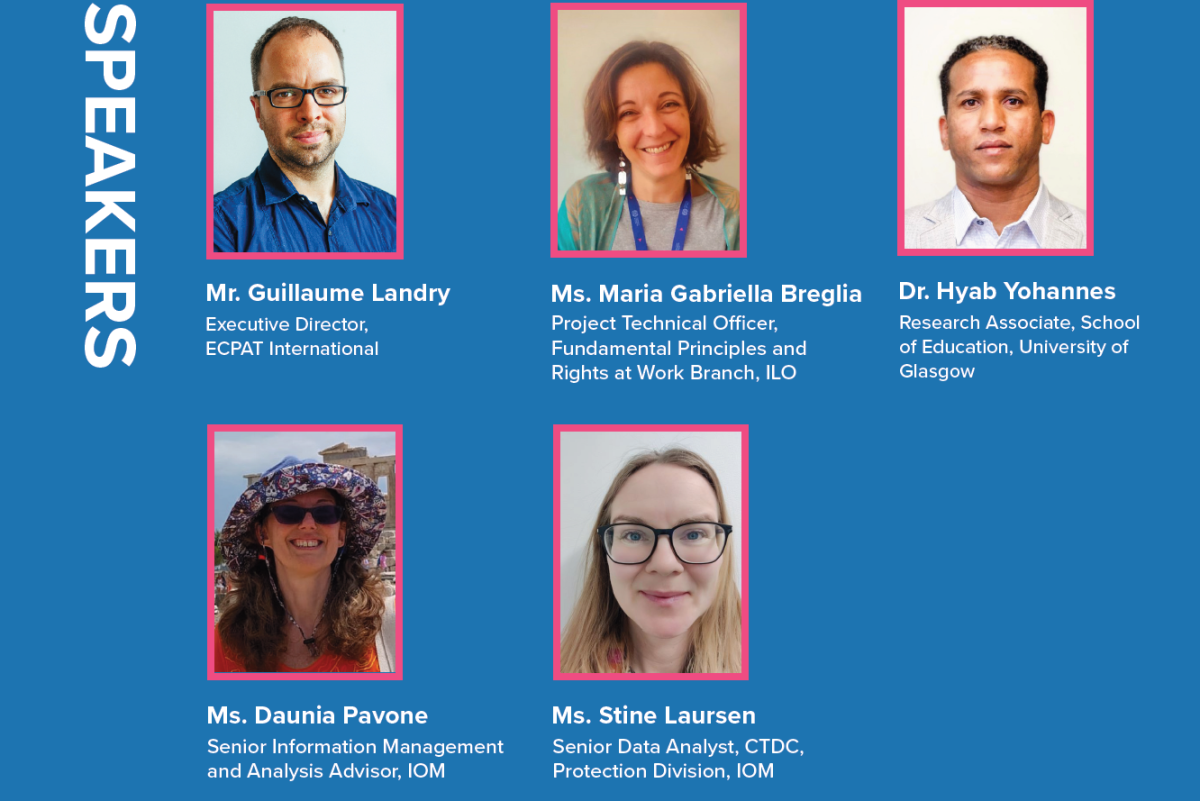Webinar 6: Ethical guidelines for outreach, research, and collection and use of data on trafficking in persons
On 30 November 2023, the Inter-Agency Coordination Group against Trafficking in Persons (ICAT) held the sixth and last session of the webinar series on trafficking in persons data and research. This webinar explored ethical considerations and guidelines for outreach, research, and collection and use of data on trafficking in persons, with a special focus on children.
During the event, Mr. Guillaume Landry, from Every Child Protected Against Trafficking (ECPAT International), presented on the Guidelines for Ethical Research on Sexual Exploitation of Children for Ethical Research on Sexual Exploitation of Children. Ms. Gabrella Breglia, from the International Labour Organization (ILO), introduced child labour research ethical standards, with the guiding principles such as the best interests of the child and extensive checklists for each step in a research process. Dr. Hyab Tekle Yohannes, from the University of Glasgow shed light on survivors' perspective on the importance of ethical trafficking in persons data collection and research. And lastly, Ms. Daunia Pavone and Ms. Stine Laursen, from the International Organization for Migration (IOM), jointly presented on how ethical considerations are practically implemented in IOM’s protection information management on trafficking in persons in crises. The webinar was moderated by Ms. Tea Machaidze from the Office of the Special Representative of the Secretary-General on Violence against Children (OSRSG-VAC), one of ICAT’s co-chairs in 2023.
The recording of the webinar is available on the ICAT YouTube channel.
Resources
ECPAT International developed the Guidelines for ethical research on sexual exploitation involving children in collaboration with Chung Cheng University Taiwan, ECPAT Taiwan, ECPAT International, and the Global working group of ECPAT member organisations and other experts. The guidelines include a checklist and practical guidance to facilitate ethical engagement with children. Available in multiple languages, including Bengali, English, Hindi, and Kannada.
The international Organization for Migration (IOM) published the Counter-trafficking in Emergencies: Information Management Guide to raise the awareness of the nexus between trafficking in persons (TIP) and humanitarian crises. It provides guidance on how to integrate counter-trafficking-specific data collection and analysis into existing information management mechanisms which are already well established in humanitarian responses. The guide is available in English, French, and Spanish.
Additional sources:
ECPAT International, Creating Stable Futures final report: Human Trafficking, Participation and Outcomes for Children.
IOM, From Evidence to Action: Twenty years of IOM child trafficking data to inform policy and programming.



